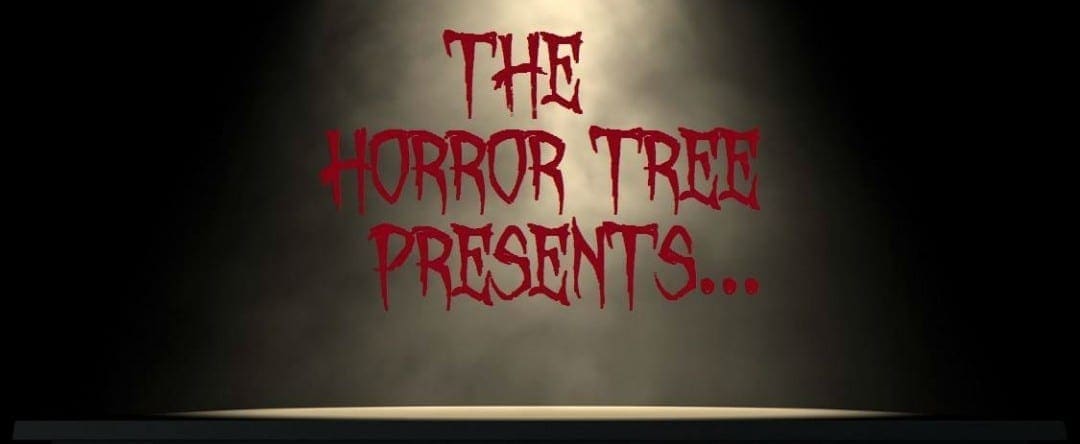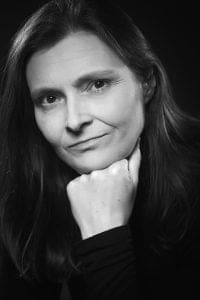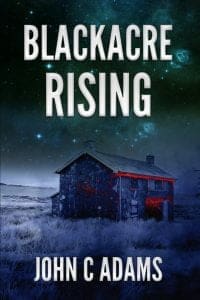The Horror Tree Presents an Interview with John C. Adams

 The Horror Tree Presents an Interview with John C. Adams
The Horror Tree Presents an Interview with John C. Adams
By Ruschelle Dillon
Ruschelle: Hello John, it’s great to interview a fellow Horror Tree contributor and book reviewer. As Jigsaw from the movie Saw teases, let’s play a game. Two truths and a lie. Tell us two truths and one lie about yourself.
John: This feels like a blind date. There’s no better venue to tell bald-faced lies about yourself and hope to get away with it. Here are two truths and one lie. Can you tell them apart? In addition to writing, I am a full-time carer for a brain-damaged relative. I am proudly breeding the world’s most impressive collection of giant spiders in our family’s greenhouse, and I am hoping to turn that into a profit-making business really soon. I can only pray that one of my kids will inherit my love of arachnids and take over the family business. I am nonbinary.
 Ruschelle: No fair, I know this one. When should I expect my Mesopotamian Sabretooth tap dancing spider? Your latest novel, Blackacre Rising, is the sequel to Souls for the Master. When penning the first book, did you plan on multiple books or did it manifest organically as the pages multiplied?
Ruschelle: No fair, I know this one. When should I expect my Mesopotamian Sabretooth tap dancing spider? Your latest novel, Blackacre Rising, is the sequel to Souls for the Master. When penning the first book, did you plan on multiple books or did it manifest organically as the pages multiplied?
John: Souls for the Master was my debut novel. Like any first work, it went through multiple versions and improvements. A previous incarnation was Commended in the First Three Pages of A Novel competition from the University of Winchester Writers’ Conference in 2012, so that tells you how long it has been a part of my life. It was published by Horrified Press in 2016 in paperback, and I republished it on Kindle in 2019. Overall, I didn’t have much of a clue what I was doing during the early versions up to 2015, but probably any emerging writer feels a bit like that. I certainly didn’t think in terms of a whole series. Just getting the book ready to submit to a publisher felt like a huge endeavor, but it was accepted by the first publisher I submitted it to, which is something I’m very proud of.
By the time Souls for the Master had been published, I had had time to get used to seeing my name in print and to think about the future a little. At that time, I made a short set of notes about a possible sequel, which I then came back to some time later when I started writing Blackacre Rising. By the time that novel was finished, I knew there would have to be at least a third instalment to see the narrative complete. But I always try to make each novel standalone because many readers come to a series partway through.
Ruschelle: As authors, we become attached to our characters. Often it’s because we base our characters on people we know. Do any of your characters from in Blackacre Rising or Souls for the Master resemble friends, family, dead lovers you dismembered and buried In your garden? Oops, I didn’t mean to say garden.
John: Actually, our home is a Victorian ex-miners’ cottage with an immensely long garden. We’ve unearthed the remains of the WW2 Andersen Shelter and, just between ourselves, many of my former lovers have unwillingly found a resting place down there. I was a lawyer before I became a writer so I’m keenly aware that basing your characters on dead people is a great way to avoid libel actions. And if the inspiration of your choice is still alive and kicking, why not take matters into your own hands…?
One of the main characters from Blackacre Rising is farmer Brett Flint, who owns Blackacre. He’s based in part on local farmers here, because it’s good to draw that direct inspiration to make a character credible. He’s also partly based on the character of the relative I care for (before he suffered brain damage of course). Quite often when I create a character they feel right and familiar, but afterwards it dawns on me where the inspiration came from. That was the case with Brett. On the other hand, Gerald Flint, Brett’s cousin, was one of the main characters in both novels and he’s more directly based on my adult son. I was aware of that during the writing.
Ruschelle: What enticed you to write about scientific experiments in Blackacre Rising? It was Monty Python’s Meaning of Life, wasn’t it? Now, I have to sing it, ‘Every speeeerm is sacreeed. Every sperm is gooood.’
John: Every child a wanted child, even when the wish for that child is downright icky and unpleasant, right? Well, it is a horror novel…
I wanted to portray a sick and twisted desire to be a parent right from the moment of conception. Infertility can eat away at even the most decent people, although no one would call Dr Luther Honigbaum or Sinistra Tungsten decent. Both yearn to be a parent and are prepared to be ruthless if that is what it takes to make it happen. Along the way, their desperation means that they lose touch with the fact that the child must come first. They can’t see that forcing unwilling participants to father your child or carry the infant in their womb is the worst possible way to nurture a young life.
It was very important to me to have both a man and a woman showing these disturbing traits, since the trope is so often that the women is crazed by the desire for a child while a man is portrayed as always wholly rational in his wish to become a father. In many ways, in Blackacre Rising, Honigbaum’s behaviour is much worse than Sinistra’s. In part that’s because he is estranged from his teenage son Don Allwood.
Fatherhood was one of the key themes of Souls for the Master, with Gerald struggling with his own father and the Master fulfilling a dark inversion of a fatherly relationship to those he sought to control. I was pleased to expand that theme in Blackacre Rising, but here it is Don, Gerald’s fellow member of the resistance, who is struggling with his relationship with his father.
Ruschelle: Do you have a favorite movie monster or wayward cryptid? There’s got to be a creature that makes you smile at its mere presence or mention.
John: I’m a huge fan of the English Fifties Sci Fi and Horror writer John Wyndham. Even my love of the Triffids, his most well known monster, is trumped by the bathys he creates in The Kraken Wakes. It’s my favourite novel of his. They arrive from Outer Space, crash land into the deepest parts of the oceans across the world, dig long tunnels to travel across the sea floor and then crawl right up out of the sea and tear people limb from limb.
Ruschelle: You have written fantasy as well as horror. Does your approach or research differ for each genre or do you treat all genres the same?
John: I can’t speak for other writers who cross genres, which many authors do, because I think every writer finds their own path. That’s absolutely right. For myself, I do approach horror and fantasy in completely different ways. Fantasy novels tend to be much longer. That means often writing a portion of the novel, having a break from it and coming back to it sometime later. Each country and culture has to be created from the ground up and that requires extensive reading to get the details right. All in all, it’s a lot more time consuming than writing a horror novel. My horror fiction is set in a universe recognizably our own but with some major differences, such as the omnipotence of the Master and the sinister forces of the Seven at work in Blackacre. But these are features I’ve invented, rather than involving a wholesale step back in time. I like how different the two experiences feel, and I never feel tempted to write only one genre or the other. I alternate between the two.
Ruschelle: When sitting down to write, do you choose the story or does the story choose you? In other words, do you always sit down to write with a story in mind, or do you hope and pray an idea bites you in the ass as you sit at the computer?
John: With short fiction, I tend to start with a title and that gives me the germ of an idea. The title comes spontaneously to mind, so I think it chooses me! I never just sit down to write without knowing what I’m going to be working on that day. I’ve got a list in one of the my files that only ever seems to grow longer but that’s good because it means I’ve always got something to write. I’m very keen to avoid the tyranny of the blank page.
Ruschelle: Damn show off. Oh, I mean, brava! Lol. Actually, keeping a file of ideas is a wonderful idea. I may need to steal it…You are a book reviewer! It’s not an easy task. What do you look for when reviewing authors works? What do you feel makes a great book review?
John: I review for the British Fantasy Society and Schlock! Webzine, as well as reviewing right here at The Horror Tree. What I look for in a book varies a lot depending on where the review will be placed because the key to a good review is to select a book that the readership will find fascinating. A review should be an entertainment in itself, and be satisfying in a small way as a self-contained publication, even if the reader doesn’t go on to buy the book immediately or at all. Many readers don’t. It is critical that the reader is provided with enough information to tell whether the plot and characters might interest them, and a good review provides a summary that avoids plot spoilers and doesn’t summarize so far into it that the whole story becomes completely predictable.
With the BFS, books are sent out to reviewers that have been submitted by publishers. With Schlock! and The Horror Tree I have the pleasure of selecting a book I believe the readers will be interested in and which speaks to me as a reader, too. I recently reviewed The Merry Spinster by Daniel Mallory Ortberg for The Horror Tree, and it was a privilege to be able to share an amazing work by a trans writer I really admire.
I like to include something personal in my response and often a little wry humor, too. Your reviewer ought to be a firm friend for the journey. I also try to be quite rigorous in analyzing some aspect of the book, perhaps theme or point of view. If a book has a particular strength or weakness that I wish to draw attention to then I try to offer more than just the observation that I did or didn’t like it. A professional reviewer ought to earn their keep, and that involves justifying the reasons for their response to a work.
Ruschelle: That being said, what in your opinion, makes a terrible book review? School us, and future book reviewers of the pitfalls of leaving reviews.
John: I’ve still got all the early book reviews I wrote when I was at a much earlier stage in my writing career and was learning the reviewer’s trade. I look at them sometimes to reassure myself how much I’ve improved as a reviewer. You need that affirmation to get the confidence to offer your opinion about the validity of another writer’s work, especially when that writer is so much better at it than you will ever be and has rightly been picked up by a massive publishing house and sold millions of books worldwide.
The worst of my early reviews are, of course, gloriously opinionated and ill informed, so it’s a very good thing that none of them ever saw the light of day. What they really all have in common is that they fail to appreciate how hard it is to write a really good novel and that one reviewer’s opinion is only ever one people’s view rather than a definitive opinion that cannot be challenged. Most bad reviews are precisely like that, in my experience.
Ruschelle: Do you have a prized book in your collection? If not, what would it be if you could lay your finger-flesh on its smooth and, oh so sexy, spine?
John: My boyfriend tried to persuade me recently that The Necronomicon was actually a real book. When I saw the madness in his eyes, I didn’t have much difficulty believing he might possess a copy. Let’s just say I didn’t look too closely into his unpacking when he arrived a while back for a visit. Since then there has been some very uncanny thumps emanating from upstairs.
I’ve always thought The Necronomicon would have a sexy spine, and indeed that the cover would be very alluring and beguiling. The true darkness lies within, but by the time you’ve opened the cover and started reading of course it is too late.
Ruschelle: I believe I own a copy of the Necronomicon. Of course, mine is a paperback and it’s written in spaghetti sauce and not blood. So, I’m going to guess it might be a knock off…As we were…As writers, we challenge ourselves and set specific goals to better ourselves at our craft. Is there a genre, theme, topic or word count etc. that you have set as a goal for yourself?
John: I need to master fantasy and horror first! Some might say I have my hands full on that score already and that even that task is likely to be completely beyond me. I have been writing articles recently as well as reviews, and joking apart I can see how these have improved my understanding of both genres.
Ruschelle: For you as an author, what do you find most challenging to write, a ferocious battle scene or a ferocious sex scene?
John: I love a good battle scene, and quite often vary them from all-out melee to single combat, to bring it back to the personal. Even on the largest battlefield with a cast of thousands there is scope for the personal to creep into the action through the settling of old scores with cruel and imaginative violence. The key is to intersperse the bloodthirstiness with plenty of trash talk. You could say the same about a ferocious sex scene, too, of course.
Ruschelle: Is there an author you would love to collaborate with on a novel at some point in your career? Okay, I know the answer is ME, but let’s choose someone else. ☺
John: I’d love to collaborate with you. The Stain had a very poetic resonance that is quite unlike my own writing. Collaboration works best when everyone brings something different to the table. That said, collaboration can take place a little too close to home, which is why my boyfriend and I still haven’t finished writing the two-thousand-word short story we began five months back.
Ruschelle: Dust that two-thousand-word puppy off and finish it! I bet it’s grown a little since you both started it.
Here’s an interesting question, would you let yourself be haunted or possibly possessed by a ghost if it meant getting their story about life after death?
John: It’s interesting that you assume this hasn’t happened already.
Ruschelle: You’re right! I should never assume. I look forward to your life after death account. I hope you got pix!
As creatives, we are inspired by films, television, music, social media, movements and people. What has been an inspiration to you most recently?
John: The hell of living in the middle of nowhere, caring for a severely ill relative with no help from outside and feeling perpetually overwhelmed at the responsibility. It made the domestic arena a living nightmare and led me to write liminal horror set in an isolated farmhouse where nothing is too weird or dangerous, and horrors literally come crawling out of the walls as the house itself is alive.
Oh, and Litsy, obviously.
Ruschelle: We all need to know what fantastic projects we should look out for from you in the not so distant future.
John: After Blackacre Rising is published it’ll be time for me to get back to my unfinished fantasy novel. I’m just over half way through the first draft, so that’s a lot of work left to do. It’s based on a Russian-inspired Medieval universe, and features some of the core characters from the Gortah van Murkar fictional world as well as some brand new characters.
Ruschelle: It’s been fantastic interviewing and celebrating the success of a fellow author from our Horror Tree family. So, where can your newfound fans find you and your work on the www?
John: Right here on The Horror Tree with my monthly reviews is a great place to start. Plus my website and Amazon page if you want to find out more about my writing. Just head over to Google. If you search for John C Adams you’ll have a choice between my Amazon page and website, John C Adams the well known University of Mississippi college football player and physician born in 1887, or alternatively John C Adams the highly respected Associate Professor of Finance at the University of Texas at Arlington. We’re a talented bunch.











